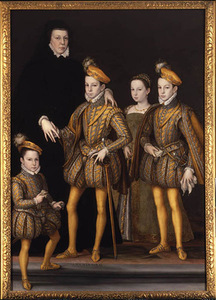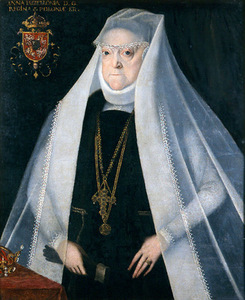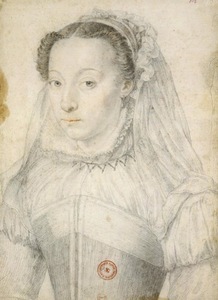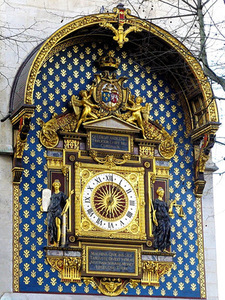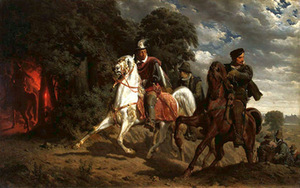A militant prince on the throne of the Republic 3
In brief: In the Lithuanian-Polish historiography Henri de Valois (1551–1589) reigning period was named "the French experiment." He was the first foreigner in the Republic of Two Nations and a monarch, who failed to fulfill formal obligations. But even the short ruling of Henri de Valois in the Republic of Two Nations allowed our country to join the game of the great history.
The fourth son of the ten children of The French king Henri the 2nd (1519–1559) and his Italian wife Catherine de' Medici (1519-1589) was born in 1551 in Fontainebleau palace, where he was baptized an Alexander Eduard and received a title of Duke of Angoulême (1566. - Duke of Anjou).
Henri Valois upbringing in the Amboise castle was imbued with humanism. His teachers were a writer Jacques Amyot (1513–1593) and an intellectual François de Carnavalet (1519–1571). Despite his royal nature, prince was not interested in the hobbies of his kinsmen, such as hunting or physical education. He was more interested in fencing, art, philosophy and literature. It is thought that prince was influenced by his mother who had created favorable conditions for arts to flourish in France. But Henri was a candidate for the throne, so he did not give up politics. He was preparing for it since childhood, for example, when he was fourteen he had accompanied a king with his regent in a tour around the country, visiting the parliaments of the province. In addition, country was torn apart by the catholic and protestant disputes, therefore, the royal dynasty always had to balance in between the two fires. According to tradition Valois supported Catholics, but young Henri had played a few jokes on that matter. Historiography mentions that a nine year old prince used to call himself a "little Huguenot". He used to sing protestant psalms to his sister Margot, insisted he should change her religion; once he had thrown her bible into the fireplace, refused to participate in the mass and burned the nose of St. Paul's sculpture. Although gradually he shifted towards Catholicism and became a harsh persecutor of Protestants.
|
|
|
After he was crowned and moved to Poland the ruler was abhorred by the customs of Republic, the rural poverty, grey fields, the drinking habits of nobility. He was also preparing to transform the Wawel castle, because he did not like the Italian style. He was also hurt by the arrogance of senators and representatives of small parliaments and disliked the difficult Polish language. On the other hand, we find praises to Lithuania among the documents, where Kaunas is called "and adornment of the republic." Trying to escape melancholy, Henri started to use medication, often spend his time at a hunting lodge in Niepołomice. He was especially disturbed when he got news about his brother's sickness. When the negotiations about the throne of Republic of Two Nations were taking place nobody thought about the fact that prince was a French successor, but the signs of Charles the 9th sickness appeared just after Henri was crowned. Thus, a leader of the Catholic group in Paris, Philippe Hurault, comte de Cheverny (1528–1599) wrote that in case of king's death, Henri's duty is to immediately return to the homeland to save the catholic dynasty. Soon enough, in 1574, May 30th, message reached Krakow about the death of the French ruler.
After hearing the news Henri hesitated. When he met with the senate on the 15th of June he asked for advice and sent the regency documents to his mother in Paris. On the 18th of June, the ruler danced and laughed with Polish aristocrats, but in the evening he refused a visit to Ona Jogailaitė and went to bed early. There are still many unanswered questions on how Henri managed to escape without being noticed, because his room was guarded by guards and servants stood next to his bed. Still, dressed in his equestrian clothes with a few companions he huffed through the door, hidden under the upholstery.
Henry the 3rd had built a camp in Saint Claude. It was here in 1589, the first or August, that he accepted a Dominican monk Jacques Clément (1567-1589) who came with a forged permission, with supposedly important documents. After giving a pile of papers to the king he solemnly announced he has a secret message for the ruler and when Henry the 3rd took him to the side, a monk whispered something in his ear and stabbed the monarch in the stomach. Murderer was killed instantly. At first king's wound seemed harmless, but feeling he will not make it to morning, in his death bed, he announced Henri King of Navarre his successor. Next day Henry the 3rd died.









